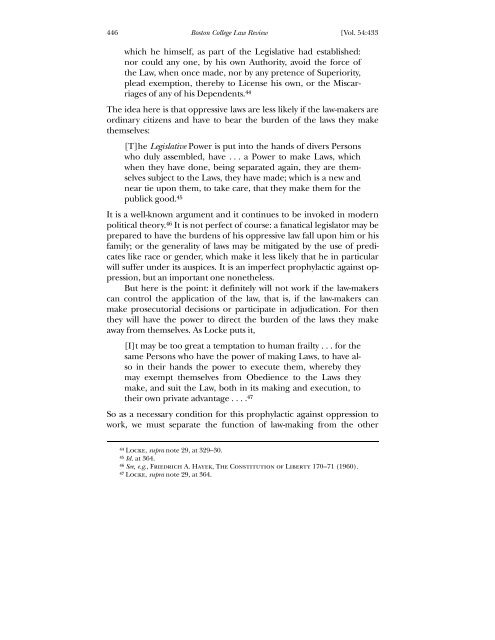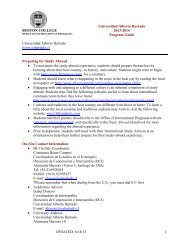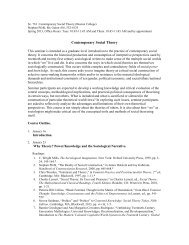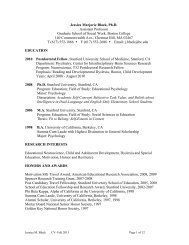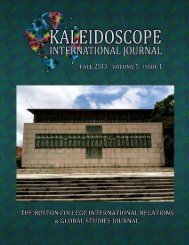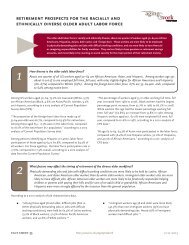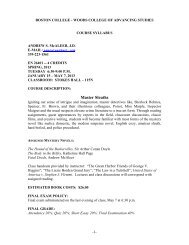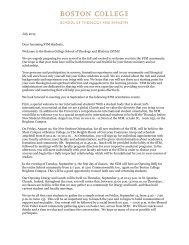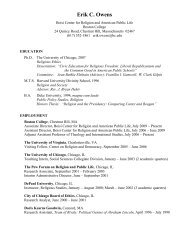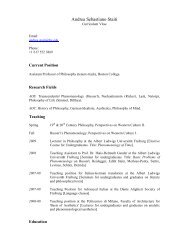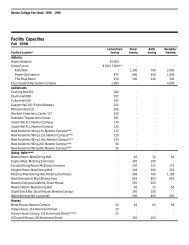separation of powers in thought and practice? - Boston College
separation of powers in thought and practice? - Boston College
separation of powers in thought and practice? - Boston College
Create successful ePaper yourself
Turn your PDF publications into a flip-book with our unique Google optimized e-Paper software.
446 <strong>Boston</strong> <strong>College</strong> Law Review [Vol. 54:433<br />
which he himself, as part <strong>of</strong> the Legislative had established:<br />
nor could any one, by his own Authority, avoid the force <strong>of</strong><br />
the Law, when once made, nor by any pretence <strong>of</strong> Superiority,<br />
plead exemption, thereby to License his own, or the Miscarriages<br />
<strong>of</strong> any <strong>of</strong> his Dependents.44<br />
The idea here is that oppressive laws are less likely if the law-makers are<br />
ord<strong>in</strong>ary citizens <strong>and</strong> have to bear the burden <strong>of</strong> the laws they make<br />
themselves:<br />
[T]he Legislative Power is put <strong>in</strong>to the h<strong>and</strong>s <strong>of</strong> divers Persons<br />
who duly assembled, have . . . a Power to make Laws, which<br />
when they have done, be<strong>in</strong>g separated aga<strong>in</strong>, they are themselves<br />
subject to the Laws, they have made; which is a new <strong>and</strong><br />
near tie upon them, to take care, that they make them for the<br />
publick good.45<br />
It is a well-known argument <strong>and</strong> it cont<strong>in</strong>ues to be <strong>in</strong>voked <strong>in</strong> modern<br />
political theory.46 It is not perfect <strong>of</strong> course: a fanatical legislator may be<br />
prepared to have the burdens <strong>of</strong> his oppressive law fall upon him or his<br />
family; or the generality <strong>of</strong> laws may be mitigated by the use <strong>of</strong> predicates<br />
like race or gender, which make it less likely that he <strong>in</strong> particular<br />
will suffer under its auspices. It is an imperfect prophylactic aga<strong>in</strong>st oppression,<br />
but an important one nonetheless.<br />
But here is the po<strong>in</strong>t: it def<strong>in</strong>itely will not work if the law-makers<br />
can control the application <strong>of</strong> the law, that is, if the law-makers can<br />
make prosecutorial decisions or participate <strong>in</strong> adjudication. For then<br />
they will have the power to direct the burden <strong>of</strong> the laws they make<br />
away from themselves. As Locke puts it,<br />
[I]t may be too great a temptation to human frailty . . . for the<br />
same Persons who have the power <strong>of</strong> mak<strong>in</strong>g Laws, to have also<br />
<strong>in</strong> their h<strong>and</strong>s the power to execute them, whereby they<br />
may exempt themselves from Obedience to the Laws they<br />
make, <strong>and</strong> suit the Law, both <strong>in</strong> its mak<strong>in</strong>g <strong>and</strong> execution, to<br />
their own private advantage . . . .47<br />
So as a necessary condition for this prophylactic aga<strong>in</strong>st oppression to<br />
work, we must separate the function <strong>of</strong> law-mak<strong>in</strong>g from the other<br />
44 Locke, supra note 29, at 329–30.<br />
45 Id. at 364.<br />
46 See, e.g., Friedrich A. Hayek, The Constitution <strong>of</strong> Liberty 170–71 (1960).<br />
47 Locke, supra note 29, at 364.


